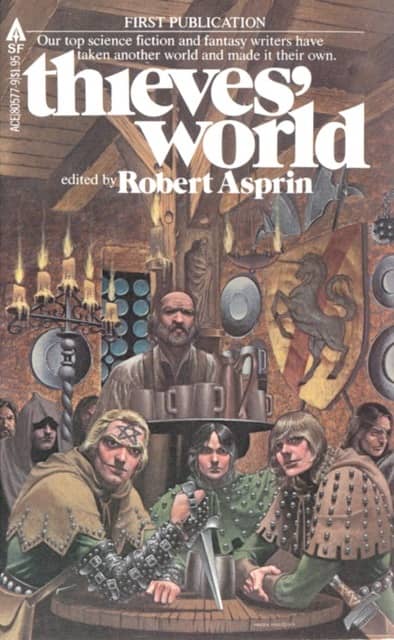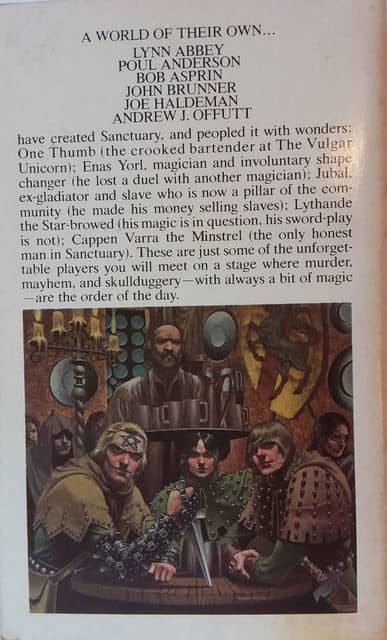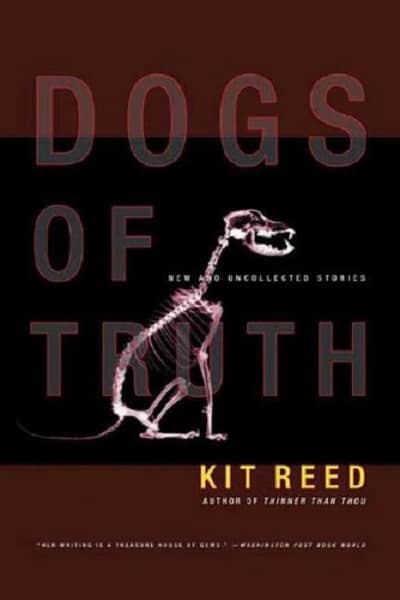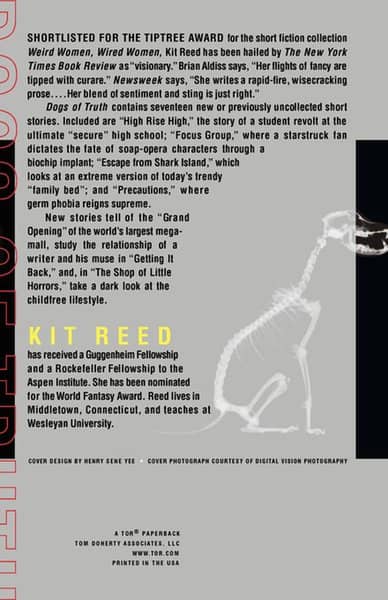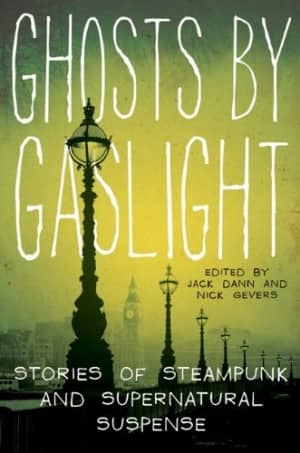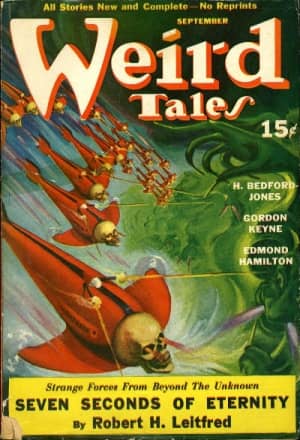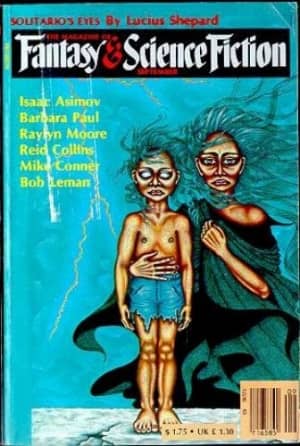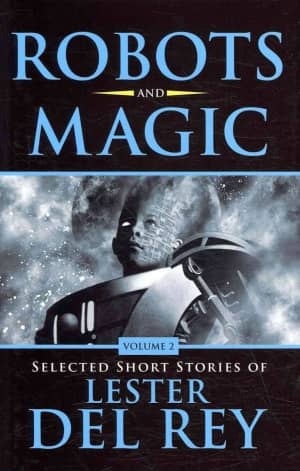Birthday Reviews: Basil Wells’s “The Laws of Juss”

Basil Wells was born on June 11, 1912 and died on December 23, 2003. In addition to publishing under his own name, he occasionally published using the name Gene Ellerman. The majority of Wells’s stories appeared between 1940 and 1960, although throughout the 60s and 70s he occasionally had stories appearing in the magazines. After disappearing in the 1980s, he again began to publish in the 1990s. He published four collections of his work between 1949 and 1976.
“The Laws of Juss” appeared in the third and final issue of Expanse, a magazine published between 1993 and 1994 and edited by Steven E, Fick. The story has not been reprinted.
In just a few pages, Wells plays games with the reader’s expectations in “The Laws of Juss.” At first, it appears that Grayson Brand is a captive of Dudley Feeber. Wells quickly reveals that the two men have a long-standing friendship, which adds an element of betrayal to Brand’s captivity.
In a datadump, Feebler explains two important things to Brand. The first is that a wealthy woman, Lynne Holmes, has set her sights on making Brand her sixth husband. The second is a description of the legal system on Juss, which Brand is relatively unfamiliar with since he is not a native to the planet.
As the title of the story implies, it is the legal system of Juss that is of interest, and although Feeber spells it out for Brand in a way that telegraphs the story’s ending, it feels like Wells has created an interesting enough punishment that it could stand to be more fully explored than within the confines of the story. According to Feeber, murder is punishable by essentially taking the murderer’s body and reforming it to resemble the victim’s body. The victim’s memories are then downloaded into the re-formed body, supplanting the memories of the murderer.

